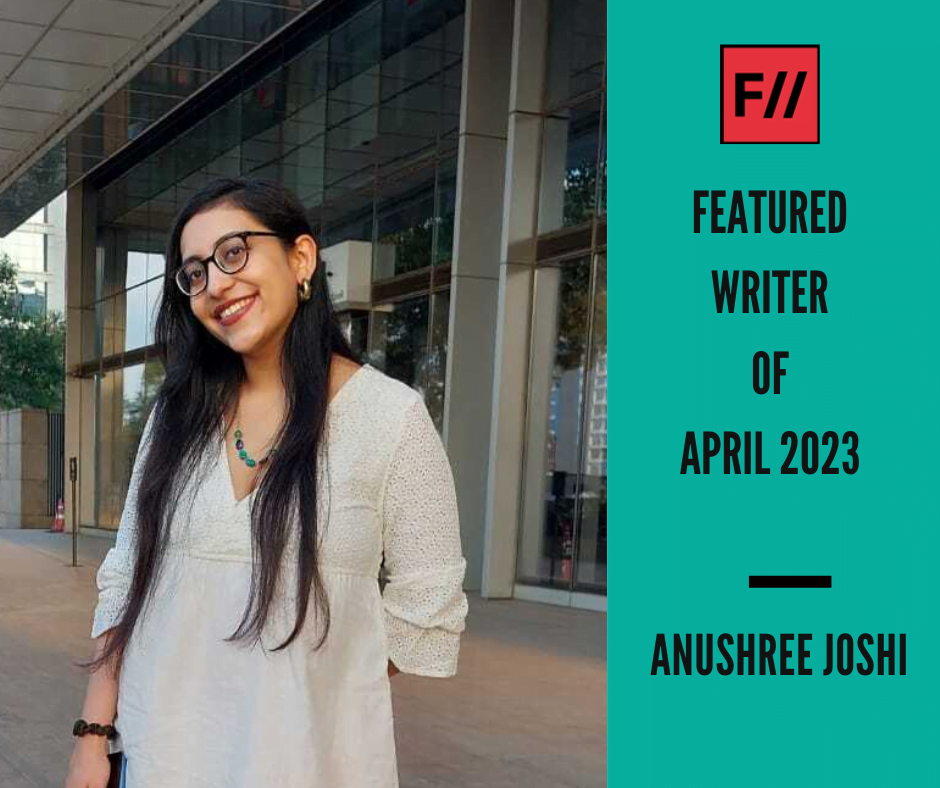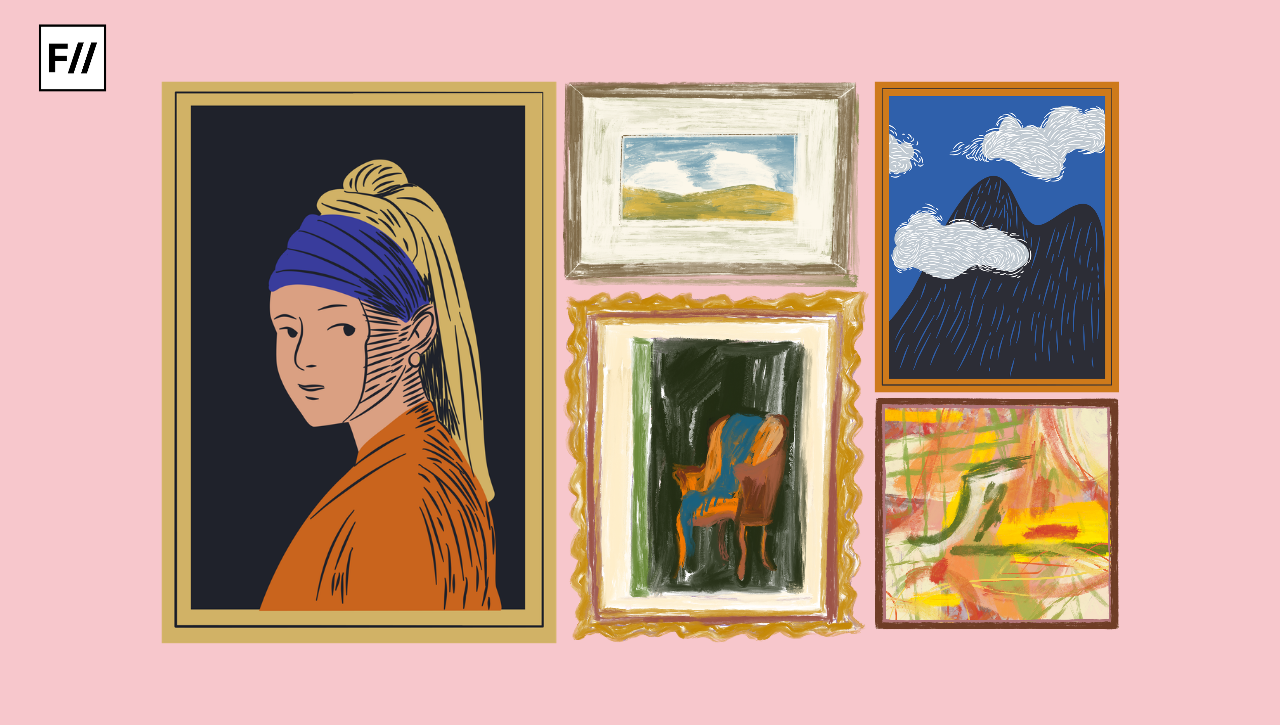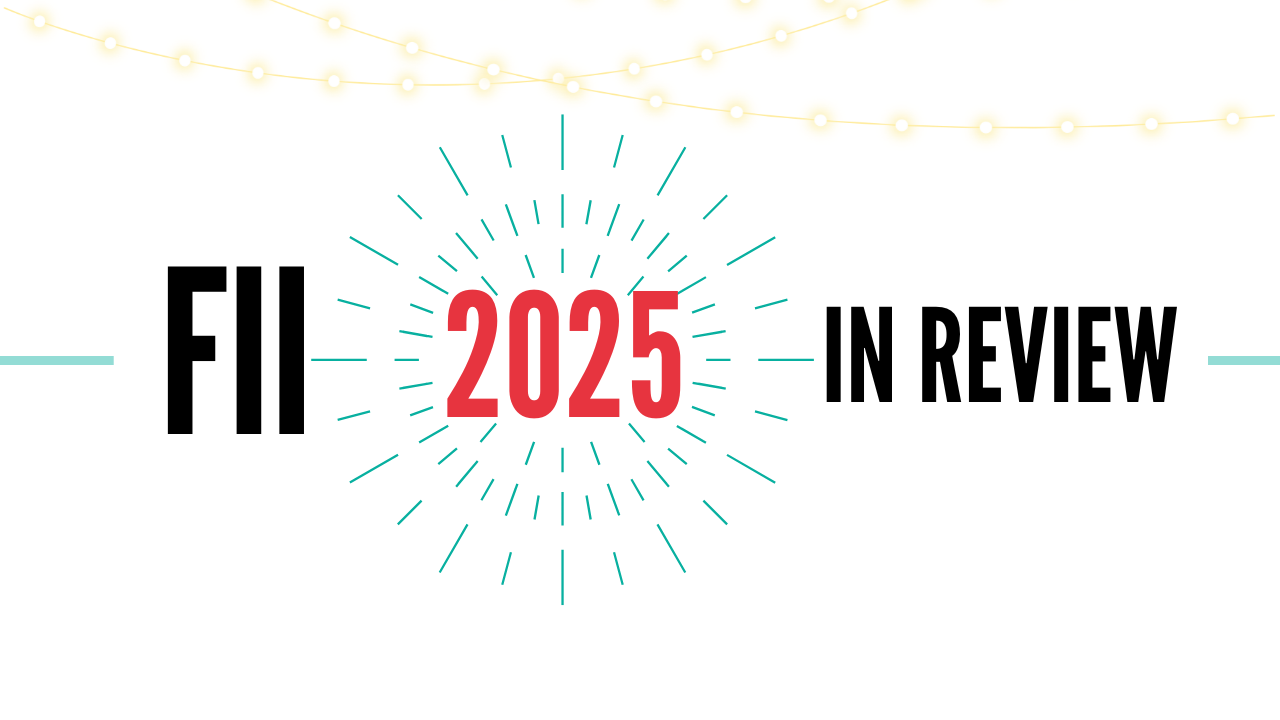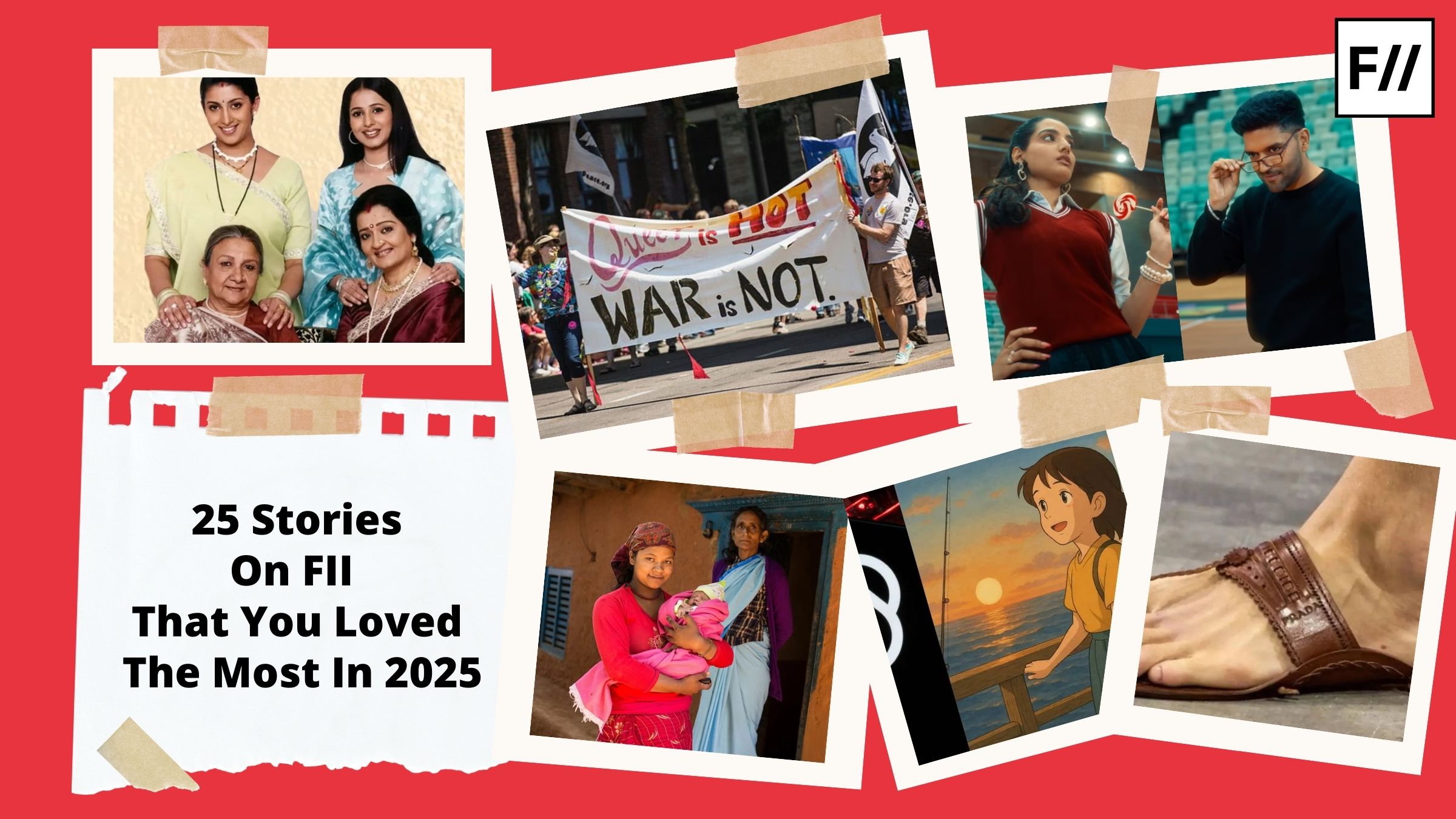We have been featuring the best writers from our writers’ community for their committed contribution to FII, making it what it is today. FII would not exist if not for the passionate and loyal feminist writers’ community that we have steadily been building over the last few years. This April, we feature Anushree Joshi.
Anushree completed her MA in English at McGill University, where she studied the intersections between social media, poetry, and anti-CAA resistance through data-based storytelling. Her areas of interest include internet culture, pop culture, poetry, and food. Some of her popular articles include Dalai Lama Row: Consent, Body Boundaries And Respect, Documentary Review: The Killing Of A Journalist And The Anxieties Of A Nation, How Is Rape Culture Related To The Notion Of Women As Carriers Of Family Honour, The Glorification Of Mother-Tongue: Critiquing The Three-Language Formula Of NEP 2020 among others.
FII: Tell us a little about yourself and what you do.
Anushree: I am a researcher for social impact and climate sustainability, about to start at the Boston Consulting Group. I just completed my Master’s in English from McGill University, where I studied the intersections between the social media, poetry, and anti-CAA resistance through data-based storytelling. I love to write creative and non-fiction pieces whenever I have the chance. My areas of interest include internet culture, pop culture, poetry, and food!
FII: How did you become a part of the FII writer family?
Anushree: It was such a while back that I don’t exactly remember it, but I used to pitch to all sorts of new media platforms back in my undergrad years at LSR. I pitched to FII because I loved their focus on intersectional feminism – that wasn’t an explicit area of interest for any of the new media publications back then. Their work was accessible, they were working on FII Hindi, and actively looked for people from diverse and marginalised religious, case, and gender backgrounds to write for them. That was a big draw – I wrote to them, answered a questionnaire, and was in!
FII: How and when did you become a feminist? Which issues within feminism are close to your heart?
Anushree: Although my parents are all for education, women working, and we have always had a sense of equality among the kids in our household, I could sense them forming judgements when women in the family did something for their independence just for fun. It used to irk me, but I had no terminology for it. I then joined an all-women college, LSR, and found the words, as well as the praxis, where women from all walks of life were trying to stand up not just for themselves but for a sense of community – the women who came before them and the ones who would follow.
It was a time of exhilarating learning, self-evaluation, and rethinking my own culpability not just in the system of patriarchy but in everyday life. The issues that resonate the most for me in feminism involve women’s education and economic independence – these issues have several layers of caste and class backing them but can actually be the solution too for several other problems of social injustice.
FII: What is your favourite piece on this site that you have written, and your favourite piece on this site that you have read? Why did they strike you?
Anushree: My favourite piece that I wrote for FII is my most recent one exploring the Dalai Lama controversy through a lens of children’s rights and condition, as well as a focus on their bodily boundaries and consent. “Dalai Lama Row: Consent, Body Boundaries, And Respect” strikes me because I think I learned the most when researching this and speaking to people about it. The nuance in this piece about the difficulty to form an opinion on Dalai Lama with respect to this incident, it comes from my own genuine struggle with the inability to categorise the event as black or white. I think good writing thrives with that kind of transparent nuance.
The piece that I read recently, which struck me as fascinating, was Ankita Apurva’s “FII Interviews: TheBigFatBao On Documenting How Our Caste & Gender Determine The Food We Eat”. I love food and despise how India’s troubling xenophobic nationalist and casteist politics intervenes with our eating habits, and this interview looked at it in such a detailed, critical way, amazing!
FII: What do you like to do when not writing about gender and social justice?
Anushree: When I am not buried in research for an academic or professional project, I enjoy lurking on Twitter and thinking of pop culture and data, watching Bollywood films, binging on a crime thriller, taking random personality quizzes, and listening to The Strokes. I also love to watch cricket (while being fully aware of its nationalist propaganda – we all have our terrible guilty pleasures) and eat momos with the spiciest chutney!
FII: What do you like about FII and our work? What more would you like to see from us?
Anushree: I like how FII is clear in its political stance. This is something that was considered unethical or kept under garbs when FII was started — with the obscure notion that having a political stance means that you are somehow compromising on journalistic ethics. I recently read a study, “Beyond the hashtags: #Ferguson, #Blacklivesmatter, and the online struggle for offline justice,” where the researchers put it incredibly well – agreeing with the fundamental principles of a socio-political resistance does not compromise the rigour of any study and analysis on it “any more than agreeing with the Civil Rights Movement or feminism compromises research on those topics“. FII’s work is testimony to this simple, yet difficult to accept notion.
FII thanks Anushree for her timely and valuable contributions. We are incredibly grateful to have her as a part of our writers’ community and appreciate her for the deeply informative writing. You can follow her on Twitter, Instagram and Linkedin.
About the author(s)
Feminism In India is an award-winning digital intersectional feminist media organisation to learn, educate and develop a feminist sensibility and unravel the F-word among the youth in India.




